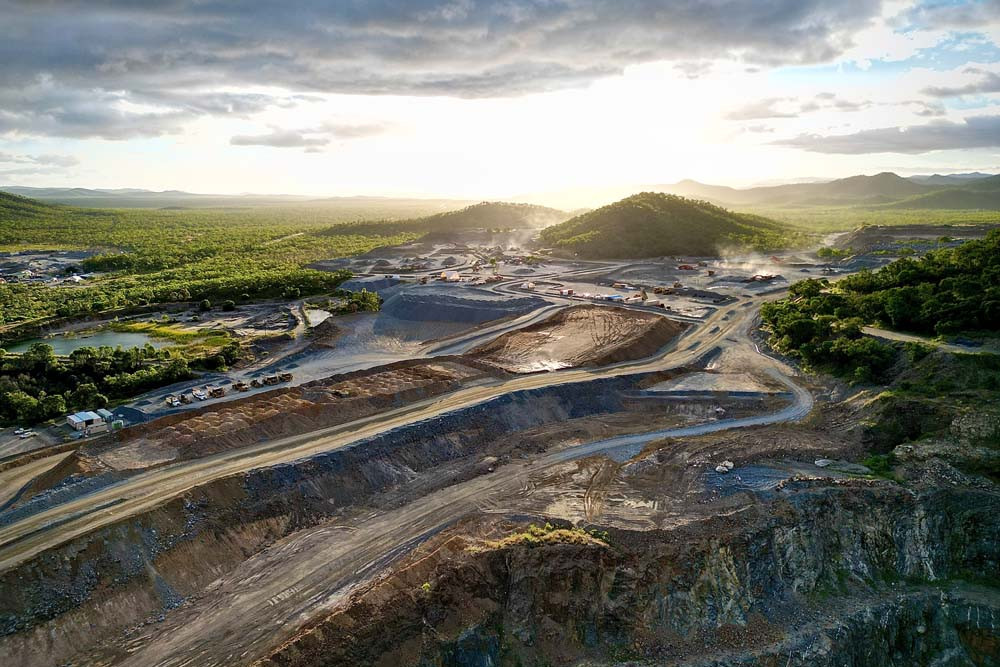Community & Business
5 December, 2024
New plant boosts metal processing
THE company behind the successful Mt Carbine tungsten mine has acquired an operating processing facility in Vietnam that will enable its product to be processed into a material that is used in the defence, aerospace and automotive industries around the world.

EQ Resources has been operating the Mt Carbine mine for the past three years, with around 200 tonnes a month being produced from its open pit operation. It plans to develop its underground operations over the next two years, as well as investigate re-opening the Wolfram Camp mine near Dimbulah.
Tungsten has become a critical product for the United States in particular, with the US Defense Production Act now classifying the raw material coming from Australia as “US domestic sources” to secure a supply chain of the product because it did not want to rely upon China which supplies 83% of the world’s tungsten.
EQR strengthened that supply chain last week when it announced the acquisition of the Tungsten Metals Group (TMG) which owns and operates the largest and most advanced ferrotungsten (FeW) plant outside of China.
FeW is a master-alloy formed by combining iron and tungsten and once added to steel, increases the steel’s hardness, wear resistance and toughness at high temperatures. It is primarily used as an alloying agent for specialty alloys, with the defence, aerospace and automotive industries being the key end markets for the product.
Its unique properties – enhanced strength, heat resistance, and conductivity – are crucial for electric vehicles, wind turbines, and other renewable energy applications. According to the company, the acquisition of the Vĩnh Bảo FeW facility in Vietnam “further integrates EQR into supply chains powering global decarbonisation efforts”.
Due to its scale and favourable cost structure in Vietnam, particularly with regards to electricity usage and cost of labour, the facility, which was built in 2011, is regarded as one of the most competitive in the industry.
“EQR is pleased to announce the execution of a Heads of Agreement for the 100% acquisition of the TMG Group,” EQ Resources CEO Kevin MacNeill said. “This transaction aligns with EQR’s strategic initiatives to be the preeminent western tungsten producer.
“Upon completion of the transaction, EQR will have achieved a strategic diversification of products, customers and geography, and be proud 100% owner and operator of critical western tungsten operations on three continents.
“Additionally, EQR will have achieved vertical integration of our upstream operations, leveraging our substantial resource base and existing production output, throughout the tungsten supply chain.”
TMG’s executive chair Tony Adcock said: “Bringing together TMG Group’s advanced ferrotungsten plant in Vietnam with EQR’s high quality upstream operations represents a compelling investment case for all shareholders.
“The TMG Board believes there are significant synergies that can be realised following this potential transaction, with the enlarged EQR positioned very well to benefit from the tailwinds in the tungsten and ferrotungsten markets globally.”
Once the acquisition is complete, EQR will have strengthened its footprint as a leading western producer and supplier of tungsten concentrate and ferrotungsten.
Tungsten is one of the metals classified in the US Restoring Essential Energy and Security Holdings Onshore for Rare Earths Act, as a rare earth metal not able to be sourced from China for US armaments after 2026 (Source: www.congress.gov/bill/117th-congress/senate-bill/3530/text).
The Council of the European Union (EU) in March 2024 adopted the European Critical Raw Materials Act, as demand for rare earths is expected to increase exponentially in the coming years.
Critical raw materials are defined by the EU as those that have high economic importance and a high risk of supply disruption due to their concentration of sources and lack of good, affordable substitutes, and tungsten has been named as one of 17 such materials, given its widespread industrial applications and
rising demand from strategic
industries such as defence, semiconductors and renewable energy.


